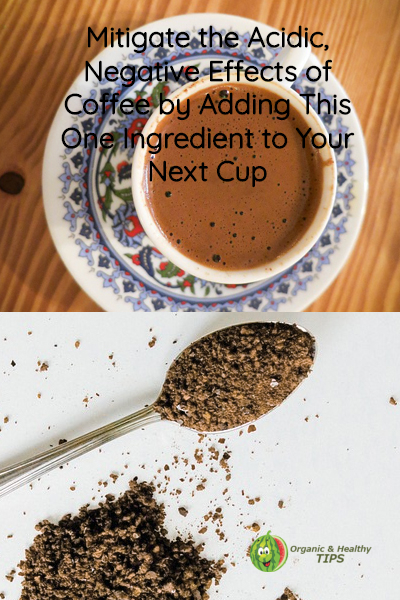Coffee is one of those products that has a 50/50 split when it comes to health benefits and health risks. While some people do extremely well with it, others feel jittery or experience other side effects that aren’t enough to offset the benefits. What few people realize, however, is that not all coffee is created equal.
Caffeine has protective effects against Parkinson’s disease, Alzheimer’s, dementia, stroke, and heart disease; it also lowers the risks of oral cancers, and type 2 diabetes.
At the same time, caffeine is a drug that can be addictive, and coffee can promote anxiety, insomnia, and fatigue; it is a health risk for people with diabetes and blood pressure issues, and it can cause different digestive issues. Coffee also is one of the higher-pesticide crops out there, making it especially important to buy it organic.
And because coffee can many times come from several different origin spots, mold has become a consistent problem. In fact, an entire culture of health-crazed consumers have begun following the popular “Bulletproof Diet” by author and podcast host Dave Asprey, which is centered around drinking coffee that is especially created in order to be low in mold residues. The brewed coffee usually has grass fed butter and special types of coconut oil mixed in.
In terms of coffee itself, acidity from long-term consumption can also contribute to health problems.
Acidity in Coffee (and How to Counteract it With Cardamom)
While it was not yet figured out how to brew alkaline coffee (although low-acidity coffee does exist), there is one trick we can borrow from the Middle Eastern as well as Indian cultures – adding the spice cardamom to coffee will help mitigate its acidity.A lot of the negative health effects also come from the acidity of coffee. It has a pH value of about 5.0, while the human body needs to be at about 7.4 for optimal health. Foods that are between 7.30 and 7.45 are the ones that will make most people feel the best in the long run, once the body becomes acclimated to digesting them.
Cardamom like most spices is very alkaline, and it also happens to mix really well with coffee from a flavor profile standpoint. It will help neutralize your body’s pH level when drinking coffee. This spice is also warming and soothing to the digestive system, and it clears the lungs and opens the heart. Cardamom helps detoxify the body, promotes oral health, and is an anti-inflammatory.
The recommendation is between a few pinches to half a teaspoon of powdered cardamom to a 12-ounce cup of coffee. Not only does it add healing properties to your coffee, it also has a strong aroma and a unique flavor.
Cardamom is The Secret Ingredient in Turkish Coffee
Traditionally cardamom is added to Turkish coffee, which has a distinctive taste and smell. Many people who tried it, like it so much they can never go back to drinking coffee without it.
To make it you will need the following:
1 cup filtered water
1 tablespoon of finely ground Arabic coffee
1/8 teaspoon ground cardamom
Sugar (optional) or preferably another low glycemic sweetener (stevia, raw honey)
To brew the coffee, you will need an ibrik (a Turkish coffee pot) if you have one or a saucepan.
Step 1: Bring water and sugar to boil. Remove from heat and add coffee with cardamom.
Step 2: Return to heat to bring to boil again until the coffee foams, then remove from heat.
Step 3: Repeat step 2.
Step 4: Pour in a cup. Let stand for a few minutes, and serve (do not stir).
Enjoy!









